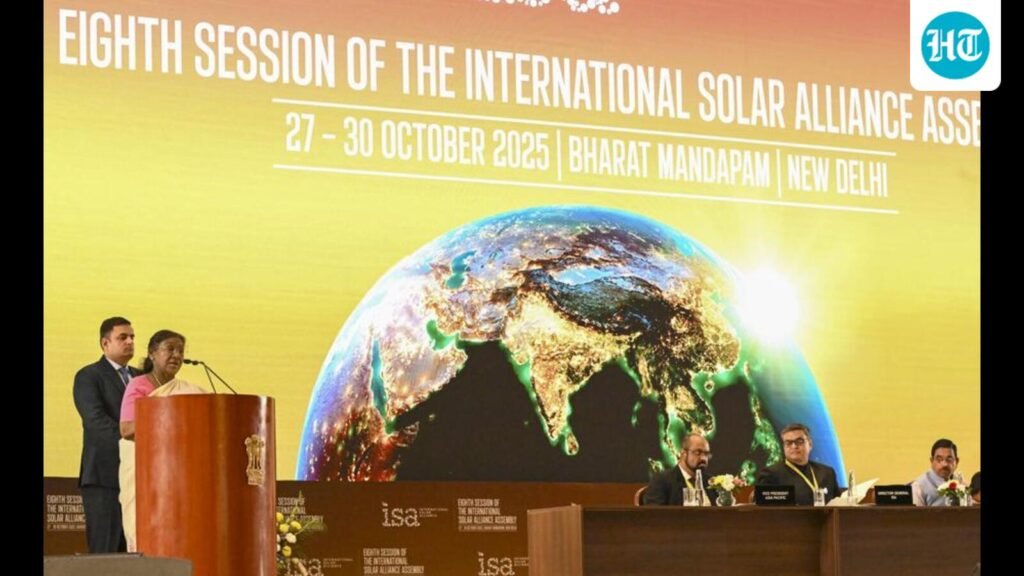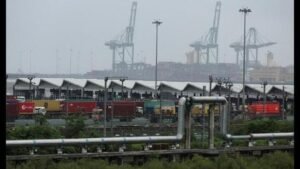
The impacts of the climate crisis are uneven, with poor and developing countries bearing the brunt. India is one of the most climate-impacted countries globally. According to Down to Earthin 2024, India experienced extreme weather events — including floods, droughts, heat waves, rainfall and temperature variability and glacial melt — on 322 days. According to Germanwatch’s Climate Risk Index 2025India has lost more than 80,000 lives and suffered more than 180 billion dollars to extreme weather events in the last three decades.

Despite not being a historical contributor to the climate crisis — with per capita carbon emissions far below the global average at the present moment too — India’s engagement with the climate agenda is immensely proactive. Indian leadership is of the view that development without climate considerations is not viable. Its climate approach has been mainstreamed into the wider developmental goals for sectors such as agriculture, water, coasts, forests, energy, infrastructure, education, and health. It has adopted ambitious and meaningful climate, energy, and adaptation goals in its Nationally Determined Contributions (NDCs) and Long Term Low Emission Development Strategy (LTLEDS), while setting a net-zero goal for 2070. In the national context, this has translated into a wide array of welfare schemes, programs and missions.
Informed by decisive leadership, targeted schemes, reforms and meaningful multi-stakeholder cooperation, India is making rapid strides in meeting its climate and developmental goals. Currently, it ranks fourth in renewable energy installed capacity and third in solar power capacity globally. Its installed capacity of solar energy has increased more than 41 times, from 2.82 GW in 2014 to 116.25 GW in June 2025 while emission intensity of its gross domestic product (GDP) has reduced by 36% between 2005 and 2020, thus progressively continuing decoupling of economic growth from greenhouse gas emissions.
India is thus one of the few G20 countries actively on track. It has even met some of its NDC targets well ahead of time. In terms of its developmental priorities, India has lifted 171 million people out of extreme poverty in 10 years and, in 2023, created approximately 1.02 million jobs in the renewable energy sector alone. It is investing significantly in clean technology, innovation, regulated carbon pricing ecosystem, energy transition, green building codes, electric vehicles, energy efficiency and storage, green hydrogen and circularity approaches, to boost self-reliance and generate green jobs.
Translating climate goals into practice requires strengthening institutions, empowering communities and building capacities. Accordingly, in the last few years, India has focused on empowering panchayatsbuilding and strengthening local institutions, community-led adaptation, creating gender-sensitive plans, promoting digitalisation, domestic manufacturing, monitoring and reporting mechanisms, scientific research, climate budgeting, finance mobilization and promoting green entrepreneurship towards effective climate actions.
Strong leadership, domestic achievements and clearer understanding of climate reality have shaped the country’s negotiating stance at the climate summits. In the last 10 years, India has emerged as a more confident, proactive, visible and strategic climate player.
It has repeatedly called upon the developed countries to fulfill their finance, technology and capacity development obligations to poor and developing countries, as important foundations for building trust, transparency and integrity in the negotiation processes. At COP28, it highlighted the importance of transparency for the loss and damage fund while, at COP29, it opposed the climate finance deal calling it “optical illusion” for its inadequacy. It prioritizes the need for developed countries towards enabling climate finance, just transitions, decarbonisation and adaptation in developing countries. In doing so, it has emerged as a critical voice, especially for the Global South.
India has extended climate protection measures through international announcements and collaborative partnerships. At COP26, India launched Mission LiFE (Lifestyle for Environment), for environmentally-conscious lifestyles globally. Through initiatives such as International Solar Alliance, One Sun One World One Grid, Coalition of Disaster Risk Resilient Infrastructure, and Leadership Group for Industry Transition (LeadIT), it has shown leadership to create platforms that can enable exchange of knowledge and best practices, towards meeting Paris Agreement goals. It has pushed for ambitious climate and energy goals in forums outside the climate summits. In view of the growing climate crisis, India seems naturally positioned to lead the climate agenda.
Shehzad Poonawalla is national spokesperson, BJP, and Vijeta Rattani works on aspects related to environment, climate change and natural resource management. The views expressed are personal





